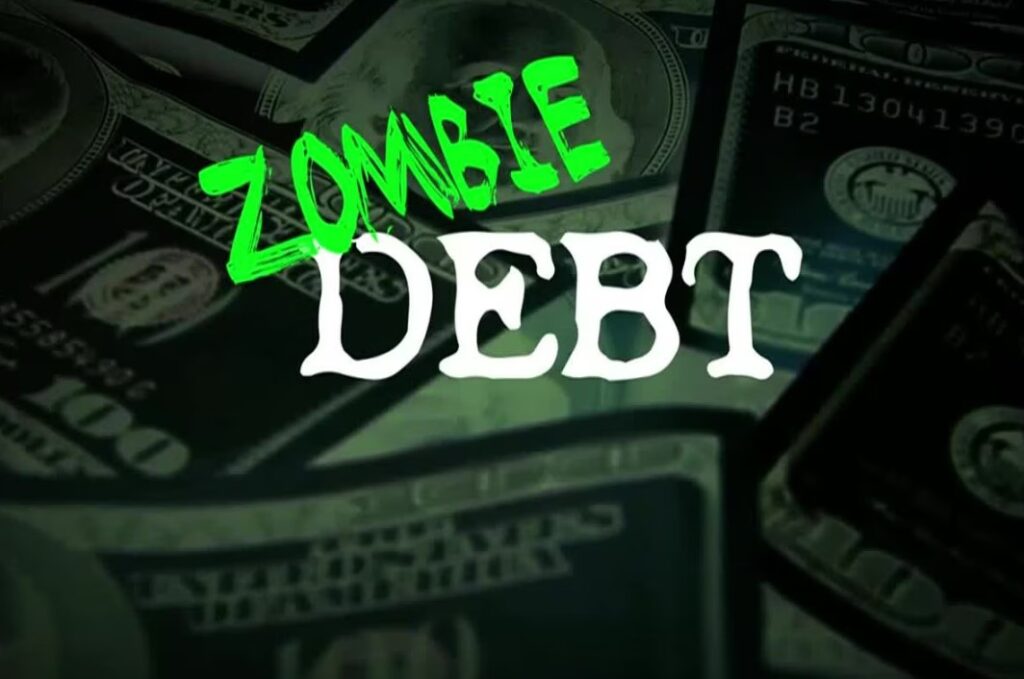Do you know what “zombie debt” is? It’s not a debt incurred by the undead, though that would make for an interesting story. Rather, it’s a word for a debt that just never goes away.
Even after you’ve paid it off, the statute of limitations has passed, or in some situations, the obligation was never owed at all, this debt continues to follow you about.
If that wasn’t frightening enough, collection agencies might still try to collect on it, which would make it reappear on your credit report and have a negative impact on your ability to make purchases. What can you, therefore, do about it?
Debt and the FDCPA
First things first, you might be wondering how to get debt collectors to stop calling if you are the victim of harassment. Debt collectors are forbidden from employing abusive, unfair, or deceptive tactics under the Fair Debt Collection Practices Act (FDCPA). This implies that they cannot annoy you by calling you repeatedly or threatening legal action.
You are entitled to file a lawsuit against a debt collector if they are acting illegally.
What is Zombie Debt?

Source: wdbj7.com
Zombie debt often results from a few various circumstances. One is when the debt’s statute of limitations has run out, making it impossible for the creditor to file a lawsuit against you. The debt does still exist, though, and collection agencies might still make an attempt to collect on it.
The statute of limitations may be reinstated and the creditor may resurrect the lawsuit against you if you make a payment or otherwise acknowledge the debt.
Another possibility is the sale of a debt to a different collection company. Old debts may occasionally be sold for pennies on the dollar, with the new collector attempting to recover the full amount due. Even if it’s the same debt you believed you had paid off, this could cause it to appear on your credit report as a new collection account.
In certain instances, the debt was never actually yours, to begin with. When debts are created in your name as a result of identity theft, if you are unaware of them, they may become zombie debts that come back to haunt you years later.
Dangers of Zombie Debt

Source: fool.com
Zombie debt is a debt that has passed the statute of limitations or has been discharged in bankruptcy but is revived by debt collectors who purchase the debt for pennies on the dollar. This type of debt can pose a number of dangers to consumers, ranging from harm to credit scores to potential harassment from debt collectors.
Negative Impact on Credit Scores
One of the primary dangers of zombie debt is the negative impact it can have on a consumer’s credit score. When a debt becomes zombie debt, it is typically reported as delinquent on the consumer’s credit report, which can significantly lower their credit score. This can make it more difficult for consumers to obtain credit, secure housing or employment, or take other important financial steps.
Potential for Unethical or Illegal Behavior
Debt collectors who purchase zombie debt may resort to unethical or illegal behavior, such as using abusive language, making repeated and harassing phone calls, or threatening legal action. Such behavior is in violation of the Fair Debt Collection Practices Act (FDCPA), which sets legal guidelines for debt collection.
However, some debt collectors may try to exploit the legal loopholes and intimidate the consumers to make a profit. This can cause significant emotional distress for consumers and can even lead to financial harm, such as wage garnishment or bank account seizures. It is important for consumers to be aware of their rights and take action against such practices.
Difficulty in Disputing or Resolving Zombie Debt
Zombie debt can also be difficult to dispute or resolve, as consumers may not have the documentation or evidence necessary to prove that the debt is invalid. Additionally, debt collectors may not be willing to negotiate a settlement or remove the debt from the consumer’s credit report, even if the debt is unenforceable.
This can leave consumers feeling trapped and helpless in their efforts to address the debt.
What You Can Do About It

Source: creditmonkey.pro
So what are your options if you have zombie debt? Checking to see if the debt is indeed yours is the first step. Ask the collector to provide you with a validation letter that details the original creditor and the debt. Keep copies of all communications you have with the collector.
You have a few alternatives if the debt is yours and it is still within the statute of limitations. You can attempt to bargain with the debt collector for a settlement that is less than the whole amount due. Before making a payment, make sure to acquire any agreement in writing. As an alternative, you could work with a lawyer to challenge the debt. If you take this course, be sure to look into the lawyer’s background in handling debt collection issues before engaging them.
It’s important to note, you still owe the money even if the statute of limitations has passed. The debt might also still be listed on your credit report, which would hurt your credit score. In any event, combating zombie debt requires initiative.
Don’t disregard collection notices or believe the debt is an error. Make sure the debt is yours by taking the time to investigate your choices for handling it. And don’t be afraid to file a lawsuit to defend your rights if debt collectors are harassing you.
In Conclusion
While zombie debt may sound like it belongs in a horror film, it’s a real problem that can seriously harm your financial stability. Even though your creditors are legally powerless, the debt remains valid and can be a drag on your credit core.





















